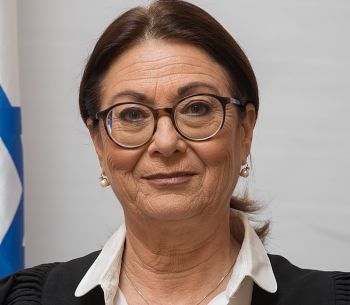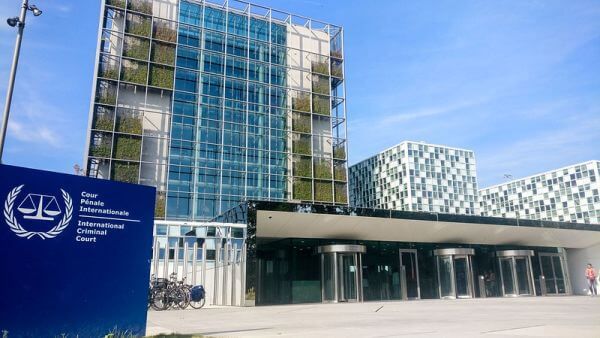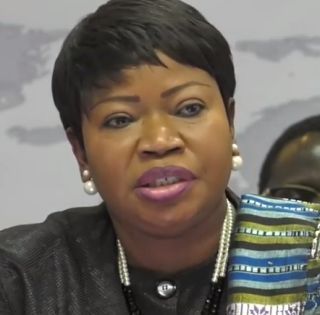The announcement by the International Criminal Court (ICC) that it will open an investigation into Palestinian allegations against Israel — including that West Bank settlements are war crimes — casts further doubt on the ability of the court to operate as it was intended.
The ICC’s founders established the court “to investigate, prosecute and try individuals accused of committing the most serious crimes of concern to the international community as a whole, namely the crime of genocide, crimes against humanity, and war crimes.”
Join the fight for Israel’s fair coverage in the news
Failure on Four Counts
Repeated Palestinian attempts to use the ICC against Israel as part of their practice of lawfare have been documented over the years, but this most recent attempt fails on four basic counts.
1. By its own definition, “the ICC is intended to complement, not to replace, national criminal systems; it prosecutes cases only when States do not are unwilling or unable to do so genuinely.” Israel is a democratic state with judicial oversight with well-developed and competent civilian and military justice systems as in any other modern country. Israel has been and remains both willing and able to investigate and prosecute cases and has done so.
“The ICC’s mandate is not to replace national courts – it only intervenes when national governments and leaders refuse or are unable to prosecute war crimes, genocide and crimes against humanity.”
Prof. William Gumede, School of Governance, Univ. of Witwatersrand

2. The courts in Israel have addressed, or are still dealing with, all the legal issues in the Palestinian allegations including the 2014 Gaza war, the weekly Gaza-border riots organized by Hamas and ongoing settlement-related issues. There is a thoroughly documented history of Israel’s justice systems, both civilian and military, investigating and prosecuting the incidents and the ICC is not supposed to duplicate this. Dr. Clare Frances Moran, who is both a university lecturer on law and an assistant council at the ICC, notes the court “was intended to complement, not replace, national criminal systems, prosecuting only when states are unwilling or unable to do so.”
3. In 1993 when they signed the Oslo Accords, the Palestinians agreed that negotiations on legal issues would be conducted directly with Israel and not through third parties. Rather than allowing itself to be used against Israel, the ICC should be directing the Palestinians to conduct themselves as stated in the signed accords.
4. Numerous expert opinions by legal analysts have concluded that the Palestinians do not meet the criteria for petitioning the ICC, of which Israel (like the United States and Russia) is not a member. There is still no recognized “state of Palestine.” While many sympathetic countries have “recognized” it as such, the Palestinians are only observers at the United Nations and have not fulfilled the international legal requirements to become an independent member of the world body. That the prosecutor at the ICC refers to the “State of Palestine” does not make it such.
Related reading: Boycotting Israel: Is It Free Speech?
Doubts on the International Criminal Court’s Credibility
The ICC is far from being universally recognized as a respected arbiter of record of “the most serious crimes of concern to the international community.” Since its establishment in 2002, the ICC has become different things to different people based more on what appears to be vested interest than on the rule of law.

A major blow to the credibility of the ICC came earlier in 2019 with intense criticism not from Israel, but by the very people who were tasked with running it. Four former presidents of the Assembly of States Parties, the governing council of the ICC, issued a scathing letter in April, 2019 slamming the ICC’s poor performance and saying they were “disappointed… frustrated . . . and exasperated” by the deficiencies at the court.
“The powerful impact of the Court’s central message is too often not matched by its performance as a judicial institution. We are disappointed by the quality of some of its judicial proceedings, frustrated by some of the results, and exasperated by the management deficiencies that prevent the Court from living up to its full potential.”
Statement by four former presidents of the ICC’s Assembly of States Parties
The four, all veteran diplomats, criticized the ICC for failing to address war crimes in conflict areas like Syria and Yemen. Despite war crimes carried out in those countries documented and exposed in the press, and despite more than half a million innocent Syrian and Yemeni civilians killed, those two humanitarian crisis areas don’t even appear on the ICC website list of situations the court is investigating.
Related reading: Legally Blind: The International Criminal Court and Israel
How Palestinian Lawfare Turns the ICC Against Israel
However, just like at the United Nations in New York and at the UN Human Rights Council in Geneva, the Palestinians have managed to get themselves a permanent listing on the ICC agenda. Like in other cases, the Palestinian petitions to the ICC against Israel appear to be weaponizing the international court as another tool against the Jewish State.
“Palestinian attempts to draw the ICC into core political aspects of the Israeli-Palestinian conflict have brought into a sharp focus precisely the risk that the Court might be exploited for illegitimate political gain.”
Israel Ministry of Foreign Affairs legal assessment of the ICC
Commenting in the blog of the European Journal of International Law, Prof. Douglas Guilfoyle harshly criticizes the “self-inflicted misfortune” of the ICC, in a meticulously detailed analysis that argues that the court in reality “is an intergovernmental organisation of limited competence in, unfortunately, every sense.”
“The Rome Statute promised us a Court of last resort that would defer to genuine State prosecutions, not a Court of first resort which micromanages the conduct of national investigations and prosecutions,” said Guilfoyle.

The ICC by definition has jurisdiction only over signatory states. Yet the ICC Chief Prosecutor Fatou Bensouda referred to the Palestinians as the “State of Palestine” despite that there is no independent state of “Palestine.” The UN classifies the Palestinians as having “non-Member Observer State status.” Like the UN, the ICC started out as a great concept on paper, but in practice its efficacy and relevance to its founding goals is leaving a lot to be desired. With its headquarters in The Hague, even the country that hosts the ICC, Holland, is demanding that the court reform itself and do better.
Israel responded to the ICC in part with an in-depth legal assessment of the ICC’s position prepared by the Office of the Attorney General, concluding that given the mandate of the ICC and the fact that there is no state of Palestine, “the ICC manifestly lacks jurisdiction over the “situation in Palestine.”
Instead of constructively facilitating Mideast peace, the International Criminal Court stains itself, unfairly smears Israel’s justice system and emboldens the Palestinians to avoid peace talks.
Liked this article? Follow HonestReporting on Twitter, Facebook, Instagram and TikTok to see even more posts and videos debunking news bias and smears, as well as other content explaining what’s really going on in Israel and the region.
Featured image: YouTube/AJ+, CCO Freepik and Png Image; ICC building CC BY-NC jbdodane; Bensouda via YouTube/Alec Singh;


